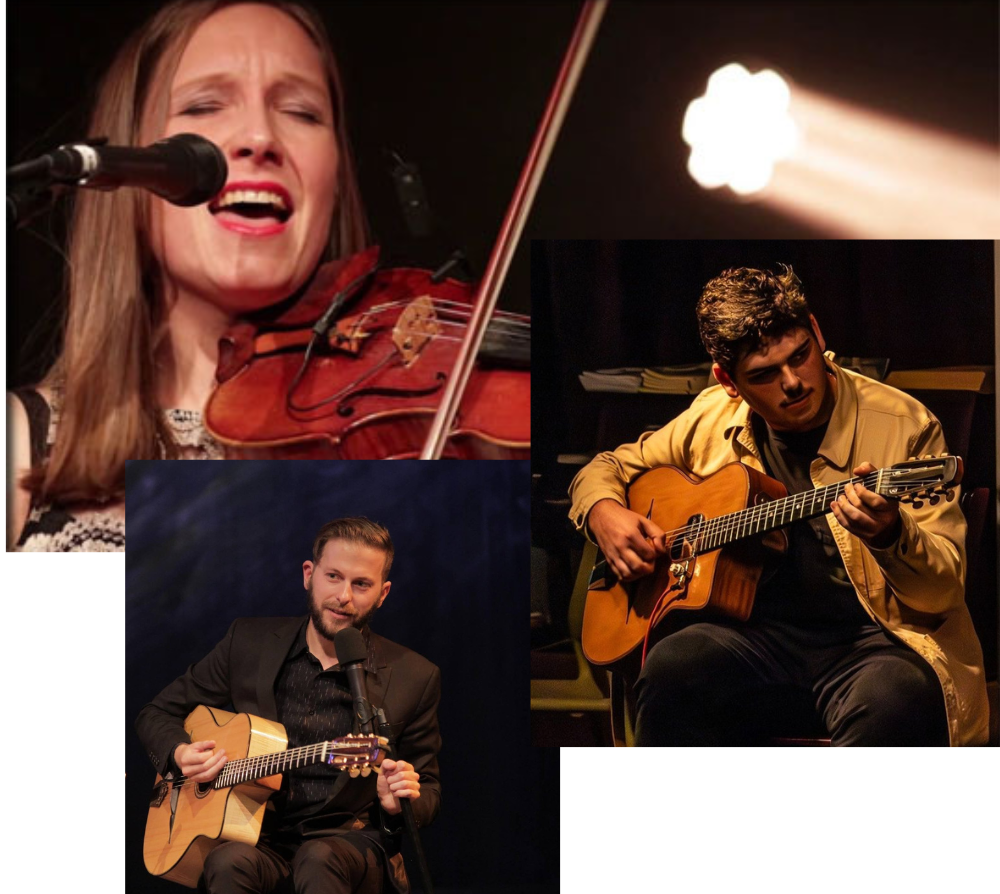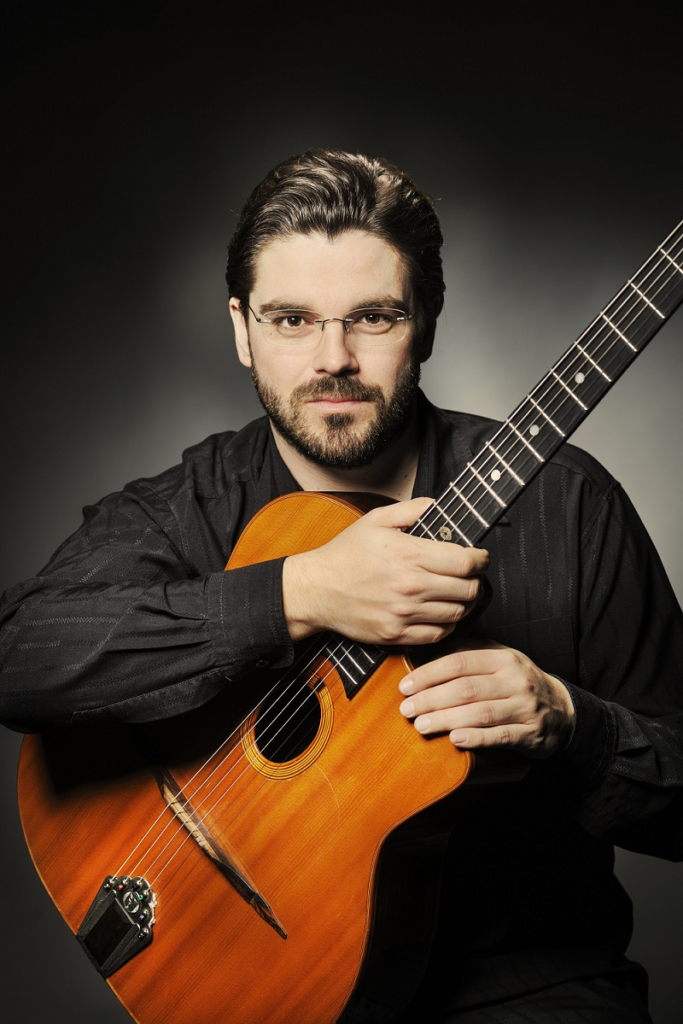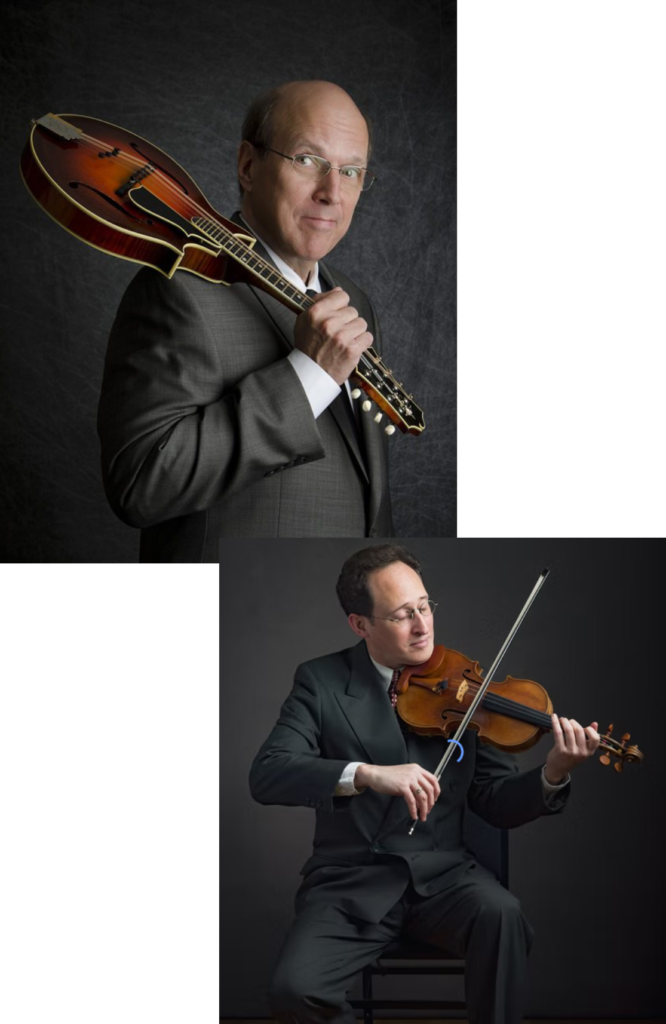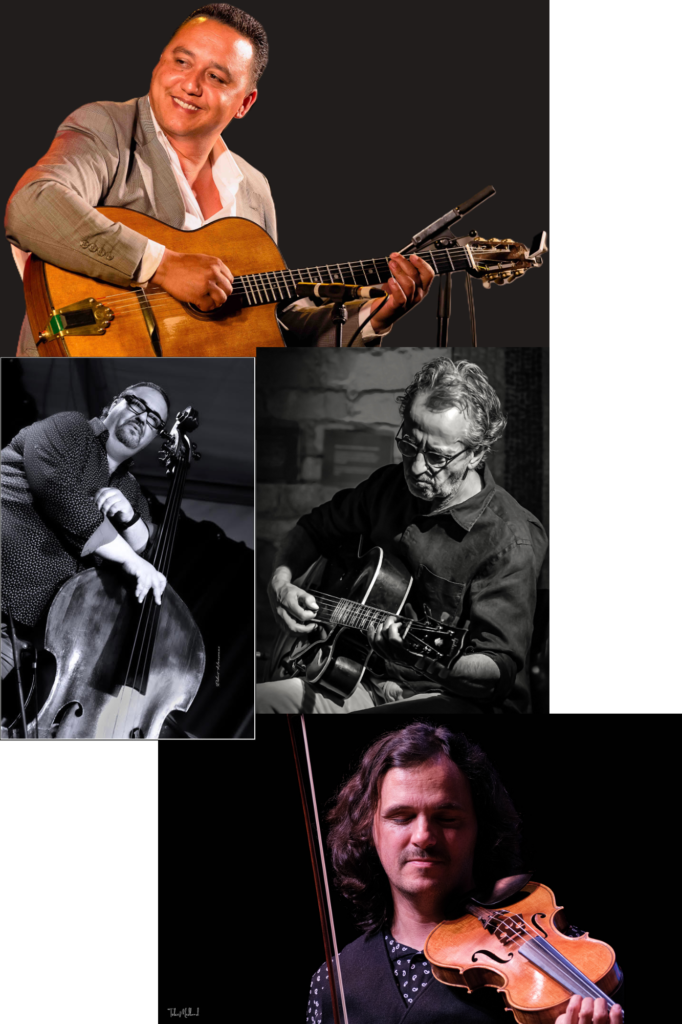Greetings, and thanks for your interest in Django in June’s 2025 concerts! This year they will take place on June 13th and 14th at Northampton’s historic Academy of Music.
During the week of June 9-15, Django in June again plays host to world class artists and avid amateurs who share a passion for the musical tradition associated with pioneering jazz guitarist Django Reinhardt. What began in 2004 as a small, single day event now spans a week, with over 200 attendees from around the world filling the dorms and grounds of Smith College with a joyful noise that goes by many names: “Gypsy jazz”, “hot jazz”, “jazz manouche”, “Sinti Swing.”
As always, the groups featured in our concerts at the Academy are made up of artists who have been teaching and jamming with us all week up on the Smith campus. We’ll do our best to describe this year’s program below, but it is safe to say that whether we mention them here or not, other artists in town for “Django Camp” will be making appearances. Django in June is delightfully unpredictable that way. Please join us!
Both shows start at 7:30
PURCHASE TICKETS

Swiss-born violinist Eva Slongo has been on our radar and in our roladex for many years. This year the stars have aligned for her to join us! Eva earned both concert and teaching diplomas in classical violin at conservatory in Switzerland followed by jazz studies with Pierre Blanchard and later Didier Lockwood. She is also a fine jazz vocalist and, by now, a well-established figure on the European jazz manouche scene.
She’ll be joined for this performance by guitarists Jimmy Grant and Sam Farthing. Jimmy hails from California and is well-known as a teacher, player and now organizer of his own Gypsy jazz camp on the West Coast. Sam, for his part, is a young guitar virtuoso whose style reflects that of the Dutch Sinti masters with whom he has stayed and studied.
German wunder-guitarist Joscho Stephan has left an indelible mark on modern Gypsy swing. With his rich tone, harmonic refinement, rhythmic flair and breathtaking solo technique, Stephan has established himself in the international guitar scene far beyond the usual circuit of jazz manouche festivals and venues.
In addition to his novel interpretations of the classics of “our” genre, Joscho stands out by combining Gypsy swing with unexpected repertoire drawn from Latin, classical and pop music. He last joined us at Django in June 10 years ago, in 2025. Rare visit for us; rare opportunity for you.


Don Stiernberg has shared his talents with students at Django Camp more than any other mandolinist, but this will be the first time we’ve invited him to share those talents with our concert audience. A professional musician for 50 years, Don’s early trajectory led him from fan, to student, then bandmate of the great Jethro Burns. For many years since, he has been a leading exponent of jazz mandolin in his own right, gigging and teaching across the country.
He’ll be joined by another Django Camp favorite, violinist Evan Price. An accomplished player of various non-classical genres, Evan won early acclaim as a contest fiddler, and later acclaim as a member of both the Turtle Island Quartet and The Hot Club of San Francisco. The YouTube audio clip below is from a CD released during the pandemic by Don and Evan in the good company of guitarist Greg Ruby and double bassist Kevin Kehrberg.
If there is such a thing as a “Dutch School” of Gypsy jazz — and one does hear the term used — Paulus Schafer is an esteemed faculty member. Born into a Dutch Sinti (Gypsy) community, he learned to play the guitar by listening to those around him and to recordings of his idol, Django Reinhardt. He can now be found performing “Sinti Swing” at the highest level around the globe. It has been over a decade since we last hosted Paulus and we are thrilled to have the opportunity to do so again.
He is joined this year by someone much more familiar to DiJ audiences, the incomparable Tcha Limberger. A multi-instrumentalist and vocalist carrying on the tradition of his own storied family of Sinti musicians, Tcha brings spontanaiety, humor, and technical brilliance to whatever he plays, whether drawn from family tradition, Hungarian Magyar Nota or Tin Pan Alley.
Rounding out the quartet are Dave Kelbie and Vilmos Csikos. Over the past 35 years, Dave Kelbie has accompanied (and produced) many of the world’s most celebrated Gypsy jazz soloists, including Fapy Lafertin, Angelo Debarre and of course Tcha Limberger. Double bassist Vilmos Csikos initially connected with Tcha through their shared passion for Hungarian music. They have since combined forces in a number of Tcha’s projects, none more forceful than this quartet. Enjoy!
